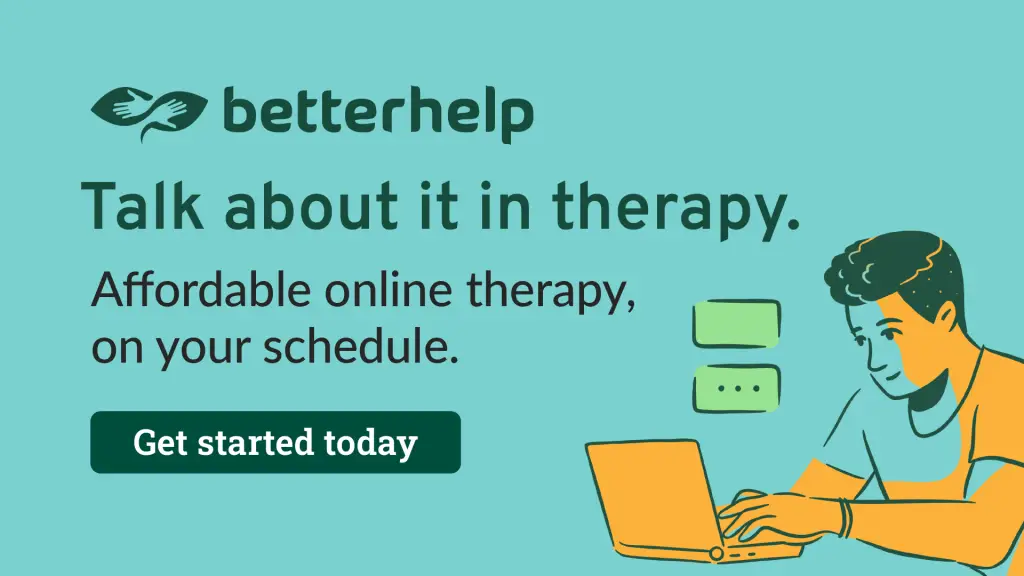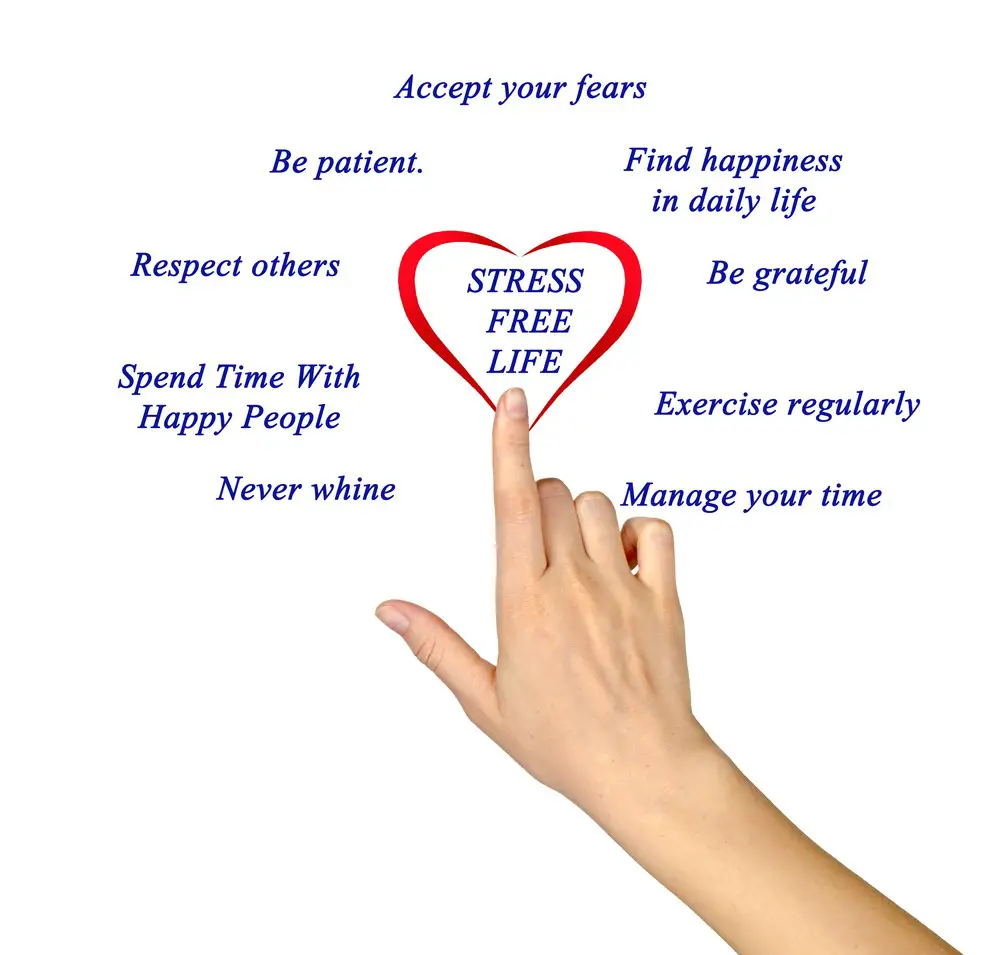As a BetterHelp affiliate, we receive compensation from BetterHelp if you purchase products or services through the links provided
Anxiety often infiltrates many individuals’ lives, manifesting in various forms and intensities. Some people’s anxiety can be so overwhelming that they are considered “riddled” or “ridden” with anxiety, resulting in constant distress and unease.
Anxiety-riddled people experience more than just the occasional bout of nervousness or worry. Their lives are profoundly affected by unrelenting anxiety that can disrupt daily activities, relationships, and even physical health. Recognizing and understanding the impact of such severe anxiety is crucial for finding effective coping strategies and treatments.
To properly support individuals experiencing anxiety-ridden or anxiety-riddled lives, society needs to acknowledge the far-reaching effects of this condition. This understanding can pave the way for better access to mental health care and foster greater empathy toward those who struggle with overwhelming anxiety daily.
Understanding Anxiety
Anxiety is a natural human emotion that helps us recognize and respond to danger, manage stress, and cope with everyday challenges. However, excessive and persistent anxiety can interfere with daily life and manifest as various mental health disorders.
Anxiety Disorders
Anxiety disorders are a group of mental illnesses characterized by extreme worry, fear, or nervousness that is disproportionate to the situation or lasts for extended periods. Some common types of anxiety disorders include generalized anxiety disorder, social anxiety disorder, specific phobias, and separation anxiety disorder. These disorders can affect people of all ages and typically require professional treatment to alleviate symptoms.
Panic Attacks
Panic attacks are sudden, intense episodes of overwhelming fear and anxiety that can lead to physical symptoms, such as shortness of breath, dizziness, sweating, and a racing heart. They often occur without warning and can be triggered by specific situations, stress, or the fear of experiencing a panic attack. Panic attacks are not always indicative of an anxiety disorder, but they can be a common and disabling symptom of panic disorder, which is a type of anxiety disorder.
Triggers
Triggers, or factors that provoke anxiety and panic attacks vary greatly depending on the individual and the specific anxiety disorder. Some triggers may include specific situations, such as social gatherings, public speaking, or being in confined spaces. For others, triggers may be more general or related to stress, trauma, or significant life events. Understanding one’s triggers is crucial in managing anxiety and reducing its impact on daily life.
In summary, anxiety is a normal and essential human emotion that can become problematic when it persists excessively or intensely. Anxiety disorders, panic attacks, and their triggers can significantly disrupt an individual’s life, making it important to seek help from mental health professionals. Understanding anxiety and its manifestations is essential for individuals and society to effectively address this widespread mental health issue.
Dealing with Anxiety

Dealing with anxiety effectively requires a multi-faceted approach that includes various techniques and practices to support mental health and maintain a sense of inner peace. Some popular methods include breathing techniques, meditation and mindfulness, and exercise and physical activity.
Breathing Techniques
Breathing techniques are essential in managing anxiety because they help calm the nervous system and ground the individual in the present moment. Some simple exercises include:
- Deep breathing: Inhale slowly for four counts, hold the breath for four, and exhale slowly for four. Repeat several times.
- Alternate nostril breathing: Close one nostril and breathe in through the other, then switch nostrils and exhale. Continue alternating for several rounds.
Meditation and Mindfulness
Meditation and mindfulness practices help individuals cultivate awareness and control over their thoughts and emotions. Techniques that may be helpful for anxiety include:
- Mindfulness meditation: Focus on the breath and gently bring the mind back to the moment whenever it wanders.
- Body scan meditation: Bring awareness to each body part, releasing tension and cultivating relaxation.
Practicing mindfulness in daily life can also involve activities such as mindful eating or walking in nature. These practices help “tame the beast” of anxiety and empower individuals to take control of their lives.
Exercise and Physical Activity
Physical activity is crucial for mental health, as it helps release endorphins, reduces cortisol levels, and provides an outlet for anxious energy. Some exercises that may help alleviate anxiety include:
| Activity | Benefits |
|---|---|
| Yoga | Combines movement, breathwork, and mindfulness for a holistic approach to managing anxiety. |
| Dance | Offers a creative and fun outlet for tension and stress while improving mood and self-confidence. |
| Outdoor exercise | Nature and fresh air provide additional mental health benefits, such as increased relaxation and reduced anxiety. |
Cultivating a consistent exercise routine can support long-term anxiety management and overall well-being. Avoiding unhealthy habits, such as excessive caffeine intake or poor nutrition, is also essential, which may exacerbate anxiety.
Professional Help and Support

Individuals riddled with anxiety can greatly benefit from professional help to improve their mental well-being and manage their symptoms. Available support comes in various forms, including therapy, medications, and support groups.
Therapy Options
Therapy is a vital component of managing anxiety wherein clients work closely with therapists to identify the root cause of their stress and fears. Cognitive-Behavioral Therapy (CBT) is a common approach that has proven efficacy in treating anxiety disorders. It focuses on restructuring negative thought patterns and building healthier coping mechanisms. Furthermore, therapists may guide clients in building and maintaining healthier relationships, fostering compassion, and strengthening their support system.
Medications
Medications can be prescribed to help individuals manage their anxiety. It is essential to understand that they may not entirely cure anxiety but instead act as a tool in tandem with therapy for optimal results. Selective serotonin reuptake inhibitors (SSRIs) and benzodiazepines are some common medications prescribed to alleviate anxiety symptoms. A healthcare professional will decide on the appropriate medication and dosage based on the individual’s needs and concerns.
Support Groups
Support groups can be instrumental in the recovery process as they provide a safe environment for individuals to share their experiences and develop a sense of understanding and camaraderie. These groups can help alleviate feelings of isolation, and members can learn new coping strategies from their peers facing similar challenges. The combined knowledge and support are beneficial in promoting recovery and maintaining emotional well-being.
Social Anxiety and Relationships
Social anxiety can significantly impact an individual’s ability to form and maintain healthy relationships. Anxiety-ridden individuals may struggle with self-confidence and find it difficult to connect with others, often leading to isolation and loneliness.
Dealing with Social Anxiety
One of the first steps in overcoming social anxiety is recognizing its symptoms and acknowledging its presence. This can help individuals develop coping strategies to manage their anxiety. Some effective approaches to dealing with social anxiety include:
- Taking small, gradual steps to expose oneself to social situations
- Practicing mindfulness and meditation to increase self-awareness and reduce anxiety levels
- Seeking professional help, such as therapy or counseling, to address underlying causes and develop personalized coping mechanisms
Build Healthy Relationships
Building healthy relationships when struggling with social anxiety can be challenging but essential for overall well-being. The key lies in taking small steps to improve self-confidence, develop effective communication skills, and cultivate meaningful connections. Some tips to achieve this include:
- Joining support groups or social clubs to connect with others who share similar interests and experiences
- Practicing active listening and empathetic communication in conversations
- Setting clear boundaries and prioritizing self-care to maintain a healthy balance in relationships
Managing social anxiety and fostering healthy relationships requires consistent effort and patience. By implementing these strategies, individuals can gradually improve their confidence and quality of life, leading to stronger and more fulfilling connections with others.

Maintaining a Healthy Mental State
Riddled with anxiety, it’s essential to maintain a healthy mental state to facilitate healing and cope with emotions such as anger, guilt, and depression. This section will discuss coping strategies, positive thinking, and stress management to provide a comprehensive understanding of maintaining a healthy mental state.
Coping Strategies
Effective coping strategies are crucial in supporting emotional well-being and mitigating anxiety-related physical symptoms. Some of these strategies include:
- Regular exercise, which promotes mental health and reduces stress.
- Getting adequate sleep can help with emotional regulation.
- Staying present and focusing on the task rather than dwelling on past or future events.
- Seeking professional help from a therapist or counselor if needed.
Positive Thinking
Positive thinking is vital in overcoming anxiety and maintaining a healthy mindset. Recognizing and challenging negative thought patterns, such as self-blame, catastrophizing, and all-or-nothing thinking, is important. Techniques for fostering positive thinking include:
- Practicing gratitude by acknowledging and appreciating the good things in life.
- Reframing negative thoughts by focusing on potential solutions and positive outcomes.
- Surrounding oneself with positive influences, such as supportive friends, family, and mentors.
- Engaging in activities that bring joy and a sense of accomplishment.
Stress Management
Managing stress is essential in the journey toward a healthy mental state. It involves identifying stressors and implementing strategies to reduce their impact. Some effective stress management techniques include:
- Setting realistic goals and time management, which can help mitigate feelings of overwhelming pressure.
- Practicing relaxation techniques, such as mindfulness, meditation, or deep breathing exercises.
- Creating a healthy work-life balance by establishing boundaries and prioritizing self-care.
- Building a support network of individuals who understand and provide encouragement during stressful periods.
Adopting these practices can aid in alleviating anxiety, promoting well-being, and fostering a healthy mental state.
Taking Control of Your Life
Anxiety can be overwhelming, but taking control of your life is crucial. This journey requires commitment, inner work, and various empowerment techniques.
Committing to Change
Making a conscious decision to regain control of your life is essential in combating anxiety. Commitment signifies a strong determination to take on challenges and work toward personal growth.
Participating in activities such as a dance class can help regain control of one’s mental state. Dance class offers physical exercise and provides an outlet for self-expression and creativity, contributing to overall well-being.
Empowerment Techniques
Feeling empowered is vital in the process of overcoming anxiety. Empowerment techniques aid in shifting one’s mindset and fostering a sense of control. Some strategies to consider include:
- Mindfulness: Practicing mindfulness exercises can help individuals become more aware of their thought patterns and reactions. This awareness allows for a better understanding of one’s mental state and promotes healthier responses to stress.
- Positive Affirmations: Repeating positive affirmations can reinforce self-belief and increase confidence, enabling individuals to face challenges head-on.
- Setting Boundaries: Establishing personal boundaries is essential to maintaining control over one’s life, helping to create a healthier balance between personal needs and external demands.
Implementing these techniques in one’s daily routine promotes inner work and helps individuals regain control.
The Role of Substance Use
Individuals riddled with anxiety often struggle to find effective ways to cope with overwhelming emotions. As a result, some turn to substance use to self-medicate and temporarily alleviate the symptoms of anxiety and depression.
Unhealthy Coping Mechanisms
Alcohol and other substances may temporarily relieve those dealing with anxiety-ridden thoughts; however, the long-term consequences often exacerbate the underlying issues. Substance use can create a vicious cycle wherein the individual relies on the substance more and more, eventually creating an even deeper sense of anxiety and depression.
Substance Abuse and Recovery
When substance use becomes an ongoing pattern to cope with anxiety, it can evolve into substance abuse. This abuse might manifest as excessive alcohol consumption, drug misuse, or other harmful behaviors. The journey to recovery for those dealing with substance abuse and anxiety requires addressing the root cause of their mental health struggles and developing healthier coping mechanisms.
Recovery can include seeking professional help from a therapist, attending support groups, or implementing lifestyle changes. Some effective, healthier strategies to cope with anxiety include:
- Practicing mindfulness and meditation
- Engaging in regular physical activity
- Establishing a support network of trusted friends and family
By addressing the heart of their anxiety, an individual in recovery can break free from the cycle of substance abuse and find healthier ways to handle their emotional challenges.
Conclusion
In the third person, it is evident that the experience of anxiety is a complex and multifaceted issue, impacting both the well-being and status of individuals. As panic can disrupt daily routines and adversely affect personal and professional lives, it is crucial to address the underlying causes to promote better mental health.
Through evidence-based interventions and self-help strategies, individuals can develop a toolkit to manage anxiety and foster a sense of well-being. Adopting a proactive approach in identifying stressors and building resilience through healthy coping mechanisms can alleviate anxiety symptoms and create a foundation for lasting stability.
In conclusion, fostering self-awareness and understanding the unique aspects of one’s anxiety can be empowering, ultimately allowing for the development of personalized strategies to cope and flourish in the face of life’s challenges. By focusing on well-being, individuals can improve their overall quality of life and build a foundation for grappling with anxiety that might arise in the future.
FAQs

- Breaking the Silence: Why Men’s Mental Health Matters More Than Ever - April 15, 2025
- How to Transform a Home’s Patio Space into a Relaxing Space - March 23, 2025
- 5 Strategies to Use a Cell Phone to Help Manage Your Stress - March 23, 2025
This site contains affiliate links to products. We will receive a commission for purchases made through these links.



